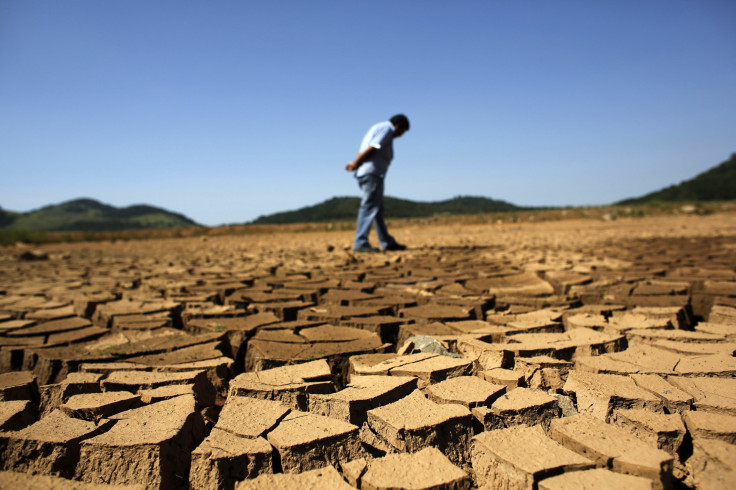Drought Watch: One Of Brazil's Biggest Cities Only Has 100 Days Of Water Supply Left

São Paulo, one of Brazil's largest cities, has only 100 days of water remaining and government officials cautioned the city needs to begin rationing or face a major crisis. Bloomberg News reported Brazilian federal prosecutors have given the city fathers and its water utility, Sabesp, 10 days to implement crisis measures or face legal action to compel it.
The news agency reported the utility disagrees with the assessment and told Bloomberg, “That measure would penalize customers and may have the opposite effect." The utility has already succeeded in getting customers to cut water consumption by what it said were policies having the equivalent effect of a rationing plan that would allow water use for 36 hours, followed by a ban on use for the following 72 hours.
According to the report Sabesp in April began offering 20 percent discounts for customers who cut their consumption by at least 20 percent from their 12-month average.
Brazil has been suffering through its worst drought in 40 years and it's affecting the nation's economy in several ways. For instance, the price of Arabica coffee is up more than 70 percent since the end of 2013. Brazil produces 35 percent of the global crop, which has been plagued by bad weather and disease.
Droughts in December and January have raised fears of low crop yields this year, which has brought up prices. Plus, a type of fungus called coffee rust has damaged more than 20 percent of the global supply, the Costa Rican Coffee Institute reports.
“The drought in Brazil is pushing some food prices up, and some argue that weather effects have been behind the recent increase of 2014 inflation expectations to 6.11 percent from 6.01 previously,” analysts from Merrill Lynch Global Research wrote in a note to clients earlier this year. The drought has also caused problems for the folks charged with keeping up the nation’s hydroelectric plants as it has forced up the price of natural gas needed to replace generating capacity.
According to Platt Energy Economist, a publication of the energy news provider Platt’s:
“Brazil has been hit by severe drought and has been scrambling to find additional supplies of gas to compensate for the lack of hydropower. Imports of LNG [liquefied natural gas] to Brazil reached a record in March at 692,051 million tons, up 75 percent from the previous 12-month moving average. The country has also signed a short-term deal to increase pipeline supplies from Bolivia.”
© Copyright IBTimes 2025. All rights reserved.






















